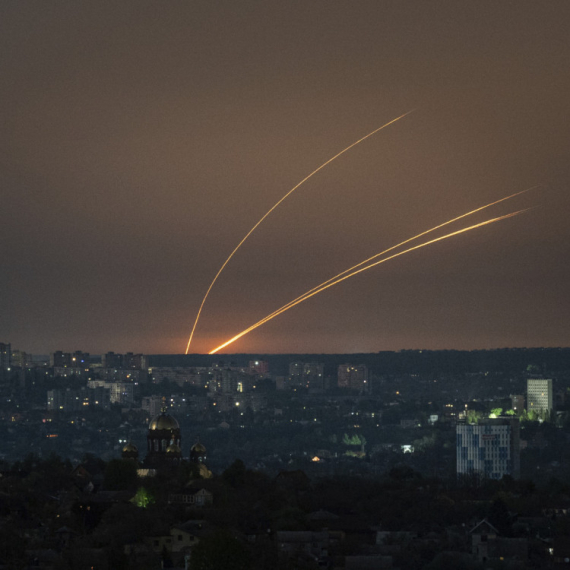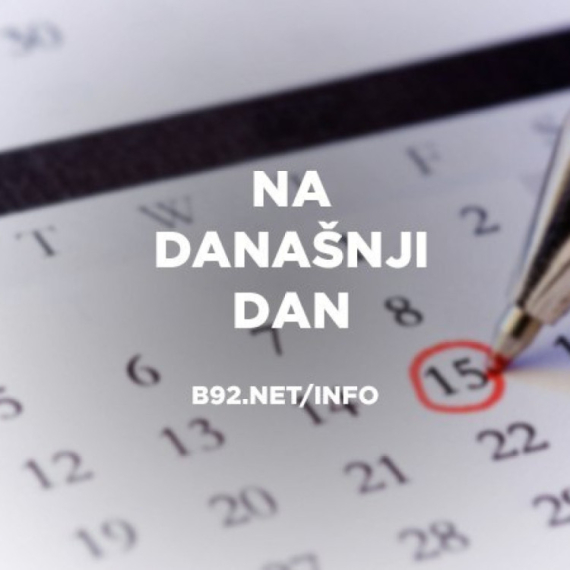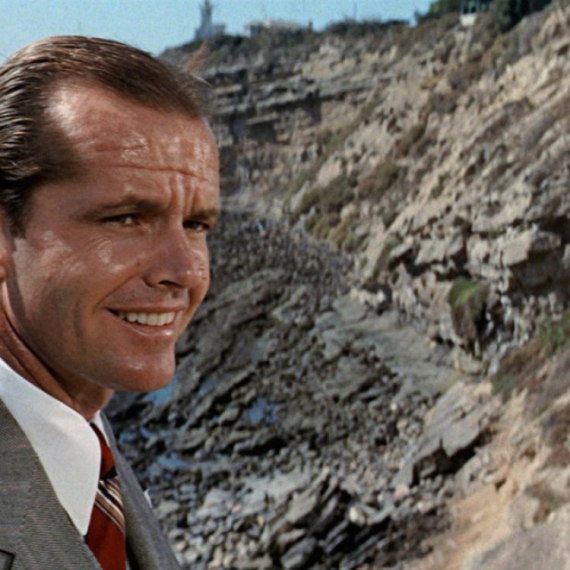Albanian border remarks anger neighbours
Monday, 27.03.2006.
15:06

Albanian border remarks anger neighbours
During a live television interview last week, Mustafaj speculated about what might happen if talks underway in Vienna over the future status of neighbouring Kosovo were to result in it being partitioned along ethnic lines - between its majority Albanian population and its Serb minority, who are located mainly in the north and are generally loyal to Serbia proper. In that case, Mustafaj said, there would be no guarantee that other borders in the region would remain fixed.The remark vexed EU officials and provoked a fierce reaction in neighbouring Macedonia, which has a sizeable Albanian majority of its own and has been extremely sensitive of its territorial integrity since inter-ethnic fighting broke out for a few months in 2001.
Serbia was also quick to accuse the minister of hinting at the possible establishment of a so-called "Greater Albania", uniting Albanians who are currently spread between Albania, Kosovo and Macedonia.
Mustafaj later said that he had merely been arguing that partition of Kosovo would be unwise. But the subject of possible border changes in the Balkans is highly controversial.
Moreover, the statement appeared to clash with the official line held by Tirana and the international community, which rules out any such changes in the region - with the exception of questions surrounding the future status of Kosovo and Montenegro with respect to Serbia.
Mustafaj has since insisted that Albania's official policy has not changed, adding that his comments were misunderstood and taken out of context, and had been used as political ammunition by the Socialist-led opposition in Albania.
He suggested they had been badly translated into Macedonian, where the negative reaction has been harshest.
"My comments have been misunderstood and misinterpreted," Mustafaj insisted on Tuesday in Brussels, where he met European Union officials to discuss Albania's Stabilisation and Association Process.
He has said that Albania's official position remains that Kosovo ought to be an independent country.
Widely carried on the media, the remarks raised eyebrows in the EU. Doris Pack, chair of the European Parliament's committee for Southeast Europe, bluntly slated Mustafaj, calling his reported comments "insane".
In Brussels, a contrite Mustafaj insisted that Tirana totally supported the United Nations Contact Group responsible for overseeing the process of deciding Kosovo's future. He also reiterated support for the work of the UN's envoy on Kosovo, Martti Ahtisaari, of Finland.
He added that Albania fully agreed with the international community that Kosovo should not be divided or permitted to join any another country - meaning Albania.
Mustafaj's explanation was welcomed in Brussels, where officials have said they are satisfied with the clarification.
In the run-up to Mustafaj's March 24 appointment with a parliamentary committee, the Tirana-based Alsat television station - which first broadcast the controversial remarks - has been asked by the Albanian parliament to hand over a tape of the interview in which they were made.
"We will review the transcript of Alsat's tape carefully, because we are dealing with a situation with hypothetical questions and hypothetical answers that can easily be misinterpreted," the head of the foreign affairs commission, Prec Zogaj, said on Tuesday.
The region-wide impact of the remarks is explained in part by the wide reach of Alsat, which is also licensed to broadcast in Macedonia, where it has large audiences, as well as in Kosovo.
In Macedonia, the comments caused a harsh reaction, reflecting Skopje's concerns about its own large ethnic Albanian population. The foreign minister, Ilinka Mitreva, called Mustafaj to ask him to clarify the remarks and described them as unacceptable.
The Macedonian president, Branko Crvenkovski, took a tougher line, accusing Tirana of bad faith.
"This is completely opposite to [Tirana's] pledges of good neighbourly relations and to Albania's tendencies to move towards the EU and NATO," he said.
"The problem is even more serious, because Mustafaj is the foreign minister, speaking on behalf of the Albanian government," he added.
The Crvenkovski concluded, "I hope Albanian officials will make efforts to reject this statement as invalid and harmful for Albania and its neighbours."
Mustafaj said he had assured Mitreva by telephone that the comments had been misunderstood.
"There was a bad translation by a Macedonian television station," Mustafaj said. "The important thing is that no damage is done to our important relation with Macedonia."
The comments also drew ire in Serbia, where representatives of the group assigned by Belgrade to conduct negotiations on the final status of Kosovo said they showed that Tirana had not given up on dreams of a "Greater Albania."
Mustafaj, for his part, argued that neither this term nor the notion that it represents even exist in Albania. He refused to discuss Belgrade's complaint further.
The row has been a gift to the Albanian opposition, which called on the prime minister, Sali Berisha, to sack Mustafaj. Berisha declined, backing the line that the minister's comments were in fact taken out of context.
Some independents analysts lean to the government's view, suggesting that the row has been blown out of all proportion.
"It's a storm in a tea cup," said Eno Trimcev, of the Albanian Institute for International Studies.
Trimcev told Balkan Insight that t here is no pattern of such statements from Mustafaj or any other mainstream Albanian politician. "Any politician that tries to play the 'national question' is bound to pay a heavy price in terms of public support," he said.
In the past, Mustafaj has in fact been criticised for taking too soft a line on Kosovo.
Last year, he angered many in Pristina by advocating Kosovo's "conditional independence under international supervision". The official line in Tirana and Pristina is that Kosovo should seek full independence, albeit with international guarantees concerning minority rights.
Since the start of the final status talks, Albania has continued to support an independent Kosovo, though it has also taken a fairly hands-off approach, insisting that it does not want to be a direct player in the negotiations.
Andi Balla is the managing editor of Tirana Times, a weekly English-language newspaper, and a Balkan Insight contributor. Balkan Insight is BIRN's internet publication.






















Komentari 0